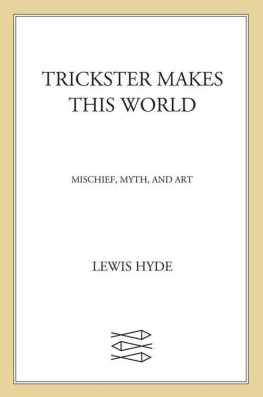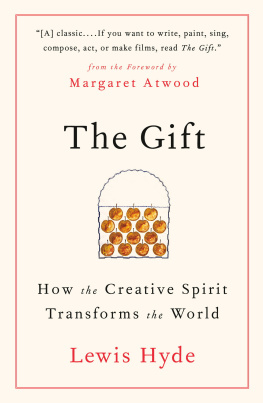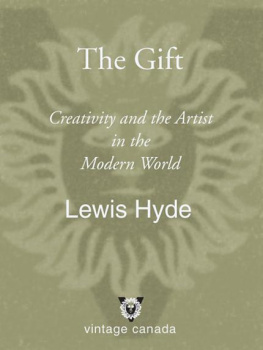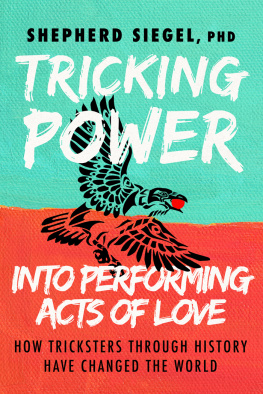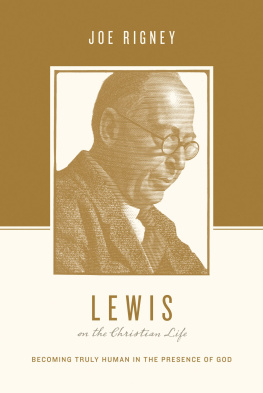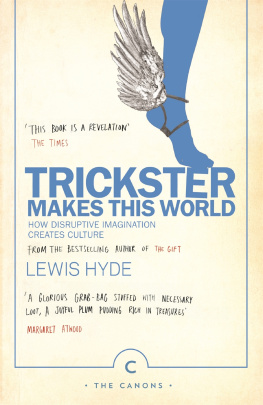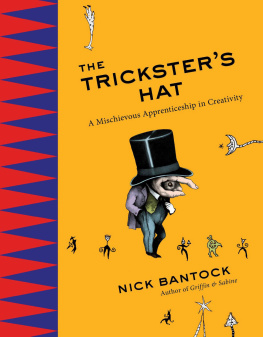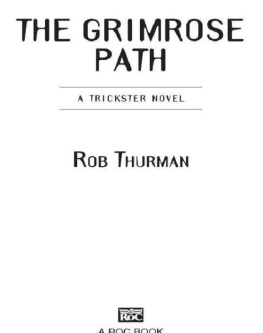by Michael Chabon
A book is a map; the territory it charts may be the world, or other books, or the mind of the cartographer. A great book maps all three territories at once, or rather persuades us that theyworld, literature, and a single human imaginationare coextensive. Of course that isnt true. A map, like all abstractions, is a kind of lie. The world outside our heads, the world inside them, and the lines by which we represent inside and out do not really correspond any more than do a squirt of stars, a connect-the-dot plan of the constellations, and the tendency of our minds to see, in an apparent arc of stars, two fish struggling on a line.
A great book, therefore, is in part an act of deception, a tissue of lies: a trick. Indeed it plays the fundamental human trick of finding, or discovering, or imposing, meaning in the senseless, pattern in chaos, fish and princesses and monsters in the heavens. That act of deception is at root a self-deception, conscious and unconscious, and without it life would belife is a terrible, useless procedure bracketed by orgasm and putrefaction. Small wonder that we should have come, therefore, to revere the One who perpetrates that lie, who embodies the contingent and in so doing lends it the appearance of necessity. His name is Trickster. And this great book, by Lewis Hyde, is a map of Tricksters wanderings through literature, human history, and the rich, surprising territory of Hydes mind. I have never found a map whose reckoning, however tricksy, felt more true.
We have at various moments in our history of foolishness persuaded ourselves that we have outgrown mythology, found clever, distancing ways to package it, to handle it with the tools of irony or scholarship or literary effect, to reduce it to fairy tale, ornamentation, motif. We have, alternatively but with as little sense, sought to view the myths of our ancestors as a kind of secret key or users manual, a shortcut to the primal, the primitive, the natural, the repressed. I have been a lover of mythology all my life and both kinds of fool at various times, whether as a reader of Stan Lees The Mighty Thor or of Robert Gravess The White Goddess. But in the end, it turns out, a myth is only a story, and a story is all we can count on for comfort, here in this obscure and broken land between the first dazzle of consciousness and its final winking out. I am a mythophile by nature and a storyteller by profession, but before I read Trickster Makes This World I never truly understood that myths are only stories, and that stories are only lies, and that lies are all we have. In Trickster Makes This World , Hyde picks out one thread of ancient story and traces it, without post-Freudian archness or the sounding of Wiccan drums, across all its knots and frayings, from prehistory to Duchamp, from the escape narrative of Frederick Douglass to Hydes own encounter with Coyote in the American Southwest. In the resultant net of knotted story, he catches us up like fish caught in a cord of stars.
My work as a writer and as an inheritor of the human bag of lies has never quite recovered from the shock of my first encounter with Trickster Makes This World, which was only, in the end, an encounter with everything I already knew and had long possessed. It is the way of confidence men and tricksters to sell you what you already own; but a great writer, in so doing, always finds a way to enrich you by the game. Before I read Trickster , I felt lost among the territories of genre and literary fiction, wanting both to exalt and to entertain readers, to write like Marcel Proust and Robert E. Howard (multiplicands whose product may in fact be William Faulkner). I felt drawn to many paths at once, reeling blindfolded across the map of literature like a man seeking a piata with a stick. After I read Trickster Makes This World, I was not a bit less lost; I was still, like Trickster and all my fellow humans, trapped among the worlds with, as one of our greatest Tricksters once put it, No direction home. But now I knew, and have since never forgotten, that I was born to wander along the borderlands. To errthat is, to wanderis human. And so is the act of making a story out of our purposeless wanderings, as if they mattered, as if they had a beginning, a middle, and an end. They dont, but there is neither joy nor art nor pleasure to be made from saying so. Coyote wouldnt waste his time on a paltry truth like that.
Every generation occupies itself with interpreting Trickster anew .
Paul Radin
We interpret always as transients.
Frank Kermode
T he first story I have to tell is not exactly true, but it isnt exactly false, either.
Once during the winter after I got out of college I was hitchhiking north of Winslow, Arizona. Just after sundown three Navajo men in an old green Chevy picked me up. The driver I remember distinctly as his hair was as long as mine, and he had lost the top of his right ear. He and his friends had been working a construction site near the New Mexico border and were headed home to Tuba City for the weekend. Two or three times in the fading light we came upon coyotes crossing the road or slinking along in the nearby brush, and there began a somewhat reverent and somewhat joking discussion of coyotes and their ability to see in the dark, which led in turn to my hearing what I only later understood to be a very old story.
Long ago, the driver said, Coyote was going along and as he came over the brow of a hill he saw a man taking his eyes out of his head and throwing them up into a cottonwood tree. There they would hang until he cried out, Eyes come back! Then his eyes would return to his head. Coyote wanted very much to learn this trick and begged and begged until the man taught it to him. But be careful, Coyote, the man said. Dont do this more than four times in one day. Of course not. Why would I do that? said Coyote. (The others in the car laughed at this, but not the driver.)
When the man left, Coyote took his eyes out and threw them into the cottonwood tree. He could see for miles then, see over the low hills, see where the stream went, see the shape of things. When he had done this four times, he thought, That mans rule is made for his country. I dont think it applies here. This is my country. For a fifth time he threw his eyes into the tree and for a fifth time he cried Eyes come back! But they didnt come back. Poor Coyote stumbled about the grove, bumping into trees and crying. He couldnt think what to do, and lay down to sleep. Before too long, some mice came by and, thinking Coyote was dead, began to clip his hair to make a nest. Feeling the mice at work, Coyote let his mouth hang open until he caught one by the tail.
Look up in that tree, Brother Mouse, said Coyote, talking from the side of his mouth. Do you see my eyes up there? Yes, said the mouse. They are all swollen from the sun. Theyre oozing a little. Flies have gathered on them. The mouse offered to retrieve the eyes, but Coyote didnt trust him. Give me one of your eyes, he said. The mouse did so, and Coyote put the little black ball into the back of his eye socket. He could see a little now, but had to hold his head at an odd angle to keep the eye in place. He stumbled from the cottonwood grove and came upon Buffalo Bull. Whats the matter, Coyote? asked the Bull. The Buffalo took pity on him when he heard the story, and offered one of his own eyes. Coyote took it and squeezed it into his left eye socket. Part of it hung out. It bent him down to one side. Thus he went on his way.

